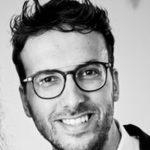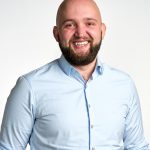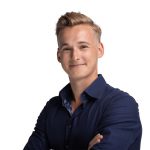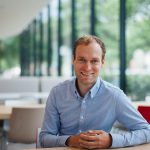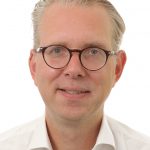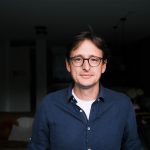Kettingbrief
Verhaallijn 1 01-03-2023
Editie 1 | jaargang 11
What has your career been like so far?
I came across this data analysis technique on the cutting edge between processes and data science: process mining. I was immediately intrigued and up until now I have never lost that.
During my master’s I started a company with fellow students, and we’ve managed to set it up in such a way that we were able to continue working in it after graduating. The first couple of years we have been doing consultancy but kept running into the same problem. The data preparation. We’re building a no-code platform to tackle that now.
Which course would you add to the IE curriculum to setup students for success?
I think this would be something related to data wrangling. Data is an increasingly big component of any kind of work an industrial engineer will do. But it is (unfortunately) rarely in a format that can be analyzed straight away. Having some basic understanding of which techniques to apply is valuable.
Where do you get the most energy from during and after your work?
During work I have a lot of meetings with possible customers. I get most energy from having good conversations with them, in which they recognize the problem we’re trying to solve. It helps realizing that we’re solving a relevant problem. Outside of that I think it’s the usual, having fun with friends and family.
What is the key thing that you have learned during your studies that you use a lot and appreciate?
That would be a methodical problem-solving approach. We’ve learned to not just rush into a problem head-first but take a step back and analyze. From there map everything out and devise a plan. What I’ve learned outside of the curriculum is mainly
related to working in teams. During lots of committees, and of course my year on the Industria board, I’ve learned to work in teams on wildly varying topics.
What advice would you give current students?
First of all, enjoy your time in university!
Secondly, don’t hesitate to follow up on a technique or insight that you gain during university. You can start your company at the KvK in one afternoon and go and try to apply your knowledge in the real world. What you learn in university is often so far ahead of what people are doing in business, that you’ve got plenty of time to figure out how to run a company in the meantime.
You can change a question, which one would you change and why?
Old question:
What is the key thing that you have learned during your studies that you use a lot and appreciate?
New question:
What aspect of business life were you most surprised by after starting your first job?
Why:
I think this has a similar kind of answer that you could give but leads to more fun anecdotes. For me, for example, it was a big surprise that most people in business also do not know exactly what they are doing either. Everyone is giving it their best, but don’t expect that just because someone is more experienced or because someone pretends to know, that they actually do know.


